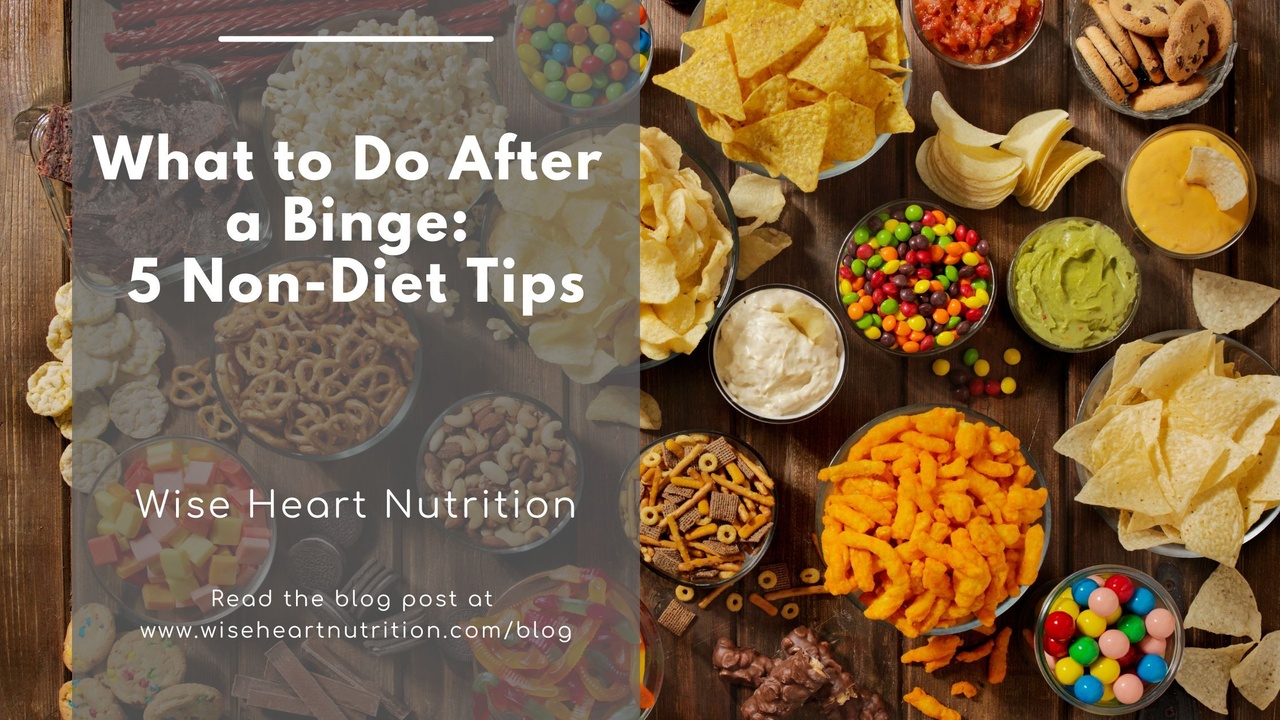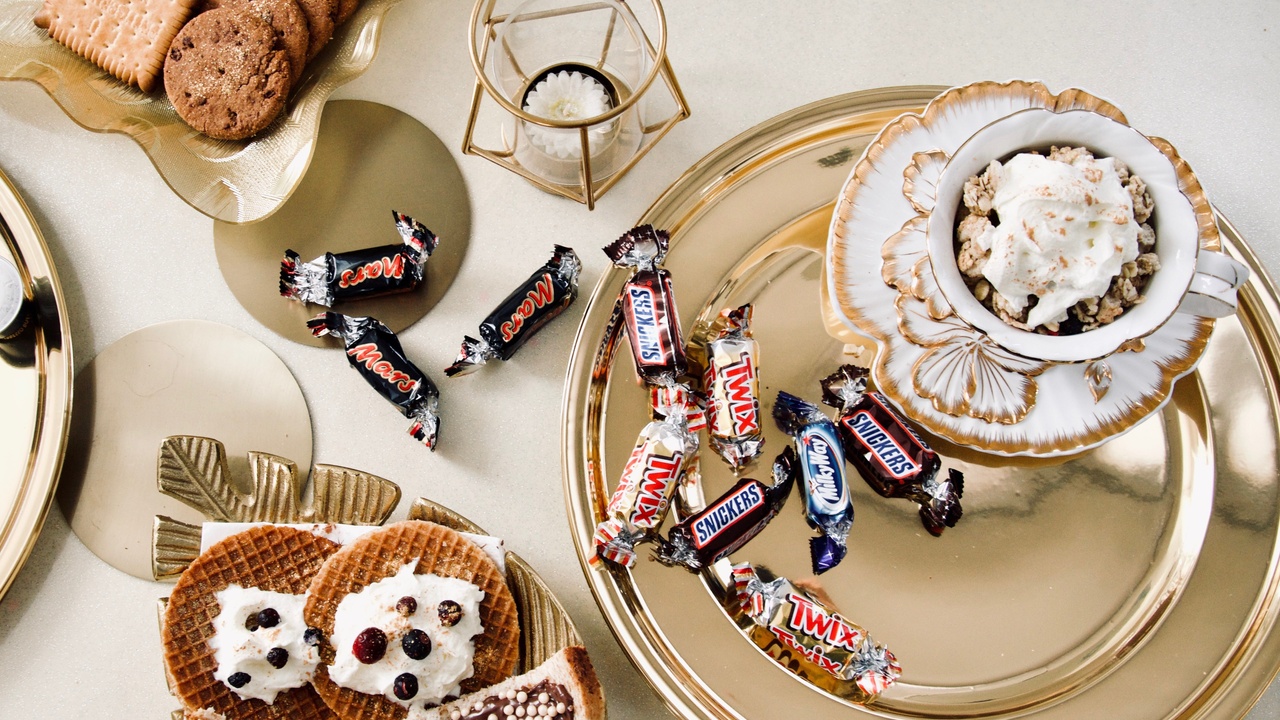Wise Heart Nutrition Blog:
All Things Anti-Diet, Intuitive Eating, and ADHD
What to Do After a Binge: 5 Non-Diet Tips

So, you've just experienced a binge eating episode... What do you do now?
Many individuals, (especially ADHDers and folx with a history of dieting) struggle with binge or compulsive eating, and more often than not, the binge eating is automatically seen as the "problem" to be fixed. This often results in deprivation and restriction to "make up for overeating", which then leads to more binge eating. In addition, beliefs about not having "enough willpower" or "discipline", as well as guilt and shame, often show up after or during a binge due to our society creating the myth that you should, or even can, have control over food. Binge eating, negative emotions, and restriction often spirals into a vicious cycle, which can feel impossible to break.
The cycle (see graphic below) has several stages: the binge, the sense of emotional relief or numbness, the thoughts and feelings that follow, the planning, the disruption to the plan, and then back to the binge. Diet culture has...
Is Food Variety Important and Possible with a Neurodivergent Brain?

Are nutritional guidelines helpful for everyone?
Dietary variety (eating lots of different foods from all the different food groups) has long been considered a pillar of “good nutrition”. Blanket dietary recommendations like this are intended to support the greater population, but when these guidelines are solely focused on nutrients and physiological health, many groups of people get overlooked, left out, and placed in a disadvantaged position where health and wellness (when measured by whether or not a person is meeting a given recommendation) are essentially out of reach. And when these folx continue to chase after an impossible standard, other aspects of health (mental, emotional, relational, financial, etc.) suffer… and that isn’t really supportive of health at all.
When we talk about health, instead of trying to fit everyone into one box, we need to consider and understand what is REALISTIC, CONTEXTUAL, ACCESSIBLE, POSSIBLE,...
Is it Ok to Use Food to Cope with Emotion?

By Rebecca Hambright MS, RDN - Wise Heart Nutrition Dietitian
Who decided that “emotional eating” is bad? I don’t know exactly where this rumor started (other than the obvious master-villains... anti-fatness and diet-culture), but I want to slap my flip phone closed (ultimate diss - duh) and be done with this shitty game of telephone.
Instead, let’s flip this narrative around. Intuitive eating principles guide us to “cope with our emotions with kindness”, which ultimately means developing a tool box of coping skills and choosing one to compassionately meet our emotional needs. Sometimes food is that coping skill. And that’s ok!!!
Food is something that can be readily accessible, so it is common for it to be used as a coping mechanism from an early age. If you weren’t given the tools or support to develop other coping skills, it makes sense that you would turn to what you had available in your...
Ok, But How Long Will I Only Want to Eat "Junk" Food?

So if you’ve heard anything about intuitive eating, you’ve heard the classic slippery slope argument - “But that means you’ll only want to eat “junk food” forever”. Is that true, though?
When you first give yourself radical permission to eat all foods (with no labels), it is true that you may initially go through a phase of wanting to enjoy all the foods that you were previously restricting. We’ll call this the “fuck it phase”. This is because when you restrict or feel fear around a food, all it really does is build the power or allure this food holds over you. Like a kid who has been waiting all year for Halloween, you may go all in on the candy or “insert fun food here”. This experience is completely normal, and to be expected for us humans who undoubtedly will always want what we “can’t” have, whether real or self-imposed (hey thanks, diet culture :/)
Butttt, how...
